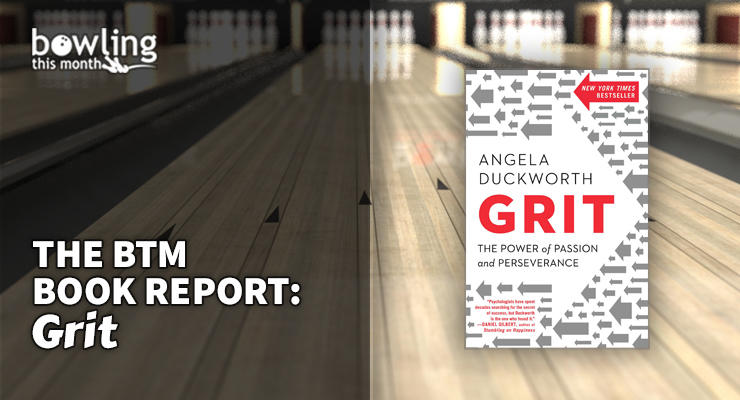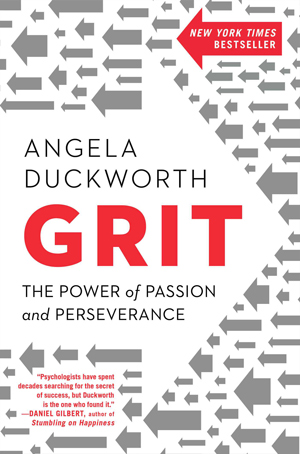| About the Book | |
|---|---|
| Title: | Grit |
| Author: | Angela Duckworth |
| Length: | 352 pages (hardcover) |
| Publisher: | Scribner |
| Copyright Year: | 2016 |
Despite research showing that people are more like to say that hard work is more important than talent, the same respondents will say that someone dubbed a “natural” is more likely to succeed in their field. Angela Duckworth’s Grit seeks to put together the pieces of what really does determine success, and if success can be cultivated, so we can stop being so distracted by talent.
The author starts by spending some time differentiating the terms talent, skill, and achievement, with the key variable being effort. If we can accept that there are certain innate talents, or at least the predisposition toward certain skills, such as singing, then what makes the difference between these things? In the author’s view, that difference is effort. She provides us with some simple equations:
Talent + Effort = Skill
Skill + Effort = Achievement
In an interview with world-renowned artisan Warren MacKenzie, he discusses his approach to pottery: “The first 10,000 pots are difficult, and then it gets a little bit easier.” That is an incredible amount of effort over time, which has inevitably resulted in immense skill and achievement.
In order to pursue that level of effort, Duckworth presents the two components of grit: passion and perseverance. Passion is the ability to stay focused on goals consistently over time, while perseverance is how hard you work and how you bounce back from setbacks. The two do not always come together, and in most cases, people will have different amounts of each. It’s also possible for these elements to fluctuate over time as we age, which the author presents as a natural process.
Passion is something people tend to think happens in a flash, but research indicates it’s more of a slow burn that starts with some exploration. You dabble and try things, find something that’s interesting, increase your effort, and slowly cultivate a passion for it.
Perseverance is often tied to a person’s goals, or their hierarchy of goals. For example, many people have a very clear view of a dream or vision for themselves, such as being a successful author, but have no clear vision ...
Already a premium member? Click here to log in.



